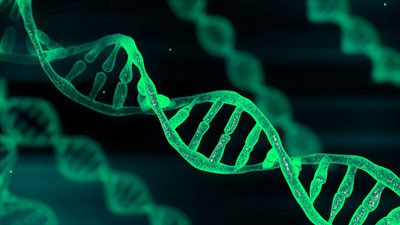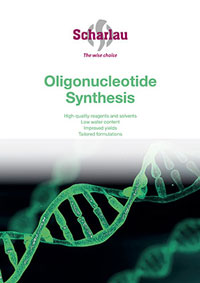Products
Services
Oligonucleotides are increasingly used for molecular biology research requiring reagents and solvents for the synthesis of specific oligonucleotides.
Oligonucleotides are short DNA or RNA sequences (2-75 nucleotides), composed of a nitrogen base, a carbohydrate and a phosphate. These ‘oligos’, as they are called in the field, are found naturally in the cells of living organisms, but it is also possible to synthesise them.
Synthetic oligonucleotides have applications in the fields of molecular biology and medicine, from diagnostics to drugs and therapies.
Oligonucleotide synthesis consists of 4 steps:
The yield of the oligonucleotide synthesis is directly related to the amount of water present in this synthesis; it is therefore highly recommended to use solvents and reagents with a low water content.
Scharlau’s line of reagents and solvents for oligonucleotide synthesis is manufactured according to the highest quality standards, undergoing rigorous and specialised quality control analyses to ensure its use. Special attention is paid to the purity and the low amount of water in all products that can impair the synthesis yield.
For further information or to enquire about other products or services, please write to helpdesk@scharlab.com.


Gato Pérez, 33. Pol. Ind. Mas d’en Cisa E08181 Sentmenat, Barcelona, España
T +34937456400